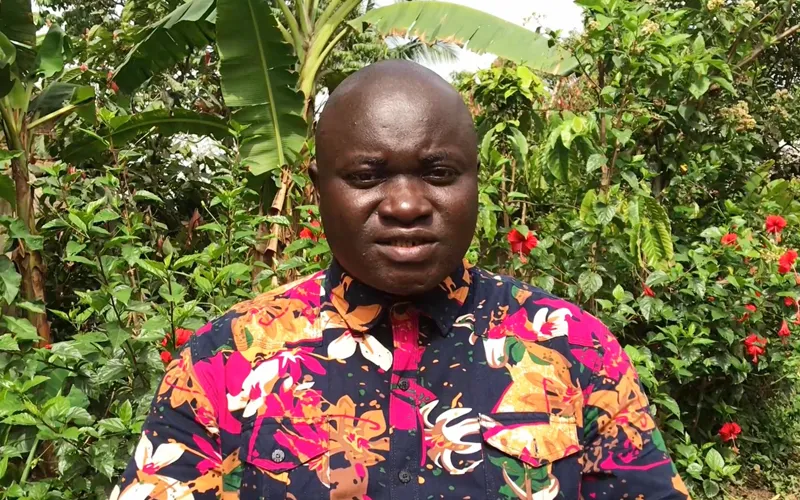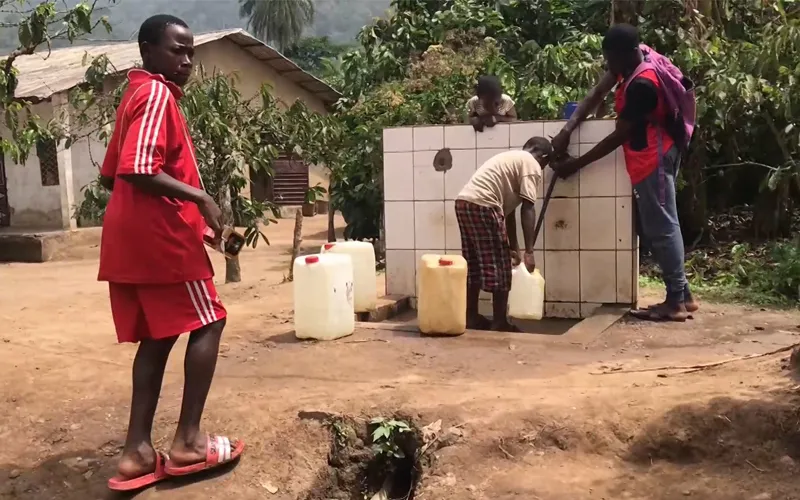Started in 2013 with the aim of addressing the lack of community development, the organization also facilitates, through a computer lab for children in the village, free access to formal education.
“We also carried out some disaster relief activities. But essentially, we focus on access to clean water, safe drinking water for people who don't have access to it,” the Global Compassion founder and president says.

The Vatican marked World Water Day on March 22 with a call for collaboration between countries to make clean drinking water available in all parts of the world.
“To guarantee fair access to water, it is vitally urgent to act without delay, to end once and for all its waste, commercialization and contamination,” the Vatican Secretary of State, Pietro Cardinal Parolin, said.
(Story continues below)
In the message, which was sent to UN organizations on behalf of Pope Francis on March 22, Cardinal Parolin added, “Collaboration between States, the public and private sectors, as well as the multiplication of initiatives by intergovernmental organizations, is more necessary than ever.”
The Global Compassion founder faulted governments and private entities for commercializing water and treating it as a commodity instead of “God's free gift” that he said should be freely available to everyone.
“Unfortunately, water is treated like an expensive commodity. But why? Because there is plenty of water everywhere. We could drill right here where I am now and have water. We could lay pipes from anywhere to have water,” Clement says in the report shared with ACI Africa Friday, April 2.
The organization, the founder says, is rooted in Christian teachings.
“As Jesus said, if anyone thirsts, let him come to me and drink. How can we, together with other religious organizations, different faith organizations, give water to the people? Well, not by just being inactive and waiting for water access to fall from the sky. We as human beings have to become active,” the Global Compassion president says.
He adds, in reference to some of the projects undertaken by the organization in various villages in Cameroon, “As a Christian, I am called to save lives by giving our community free access to drinking water. For example, in 2018 we had successfully completed a water project in Bamia village and are currently completing one in Nganzom village. It is a devastating situation when you look at the statistics. Due to the consumption of unclean water, villagers become victims of bad diseases.”
The organization is also involved in interfaith dialogue bringing together people of various religious beliefs with a call for peaceful co-existence in Cameroon.
“We also work with Catholic organizations to change the hatred of many people into love, to help our people understand that we are all equal and need to work together to find sustainable solutions for our communities,” Clement says, adding that the involvement and influence of religious groups in providing water systems is essential.

“Catholics are doing a lot in other communities and we hope we can work with them for access to clean water in our community as well,” he says.
His major challenge, he recounts, is getting as many people as possible on board to participate in community development projects through funding.
Clement notes that the Cameroonian government, in particular, is not doing enough in the provision of safe drinking water to the population.
“In communities like the one I live in, there is a serious problem of having clean water to drink. I can only urge our government of Cameroon to invest in access to clean water…throughout the country and specially to involve international organizations to do something serious to achieve this goal,” he says.
The community philanthropist adds, “My organization is doing what it can. However, we have a serious lack of funding to do what needs to be done to give communities access to clean water.”
Clement further says, “We are working with the target population here. We have our office here on the ground and a new project to provide access to clean water in four different villages. But we don't have the funding.”
Christian Peschken of EWTN Deutschland contributed to the reporting of this story
Agnes Aineah is a Kenyan journalist with a background in digital and newspaper reporting. She holds a Master of Arts in Digital Journalism from the Aga Khan University, Graduate School of Media and Communications and a Bachelor's Degree in Linguistics, Media and Communications from Kenya's Moi University. Agnes currently serves as a journalist for ACI Africa.











